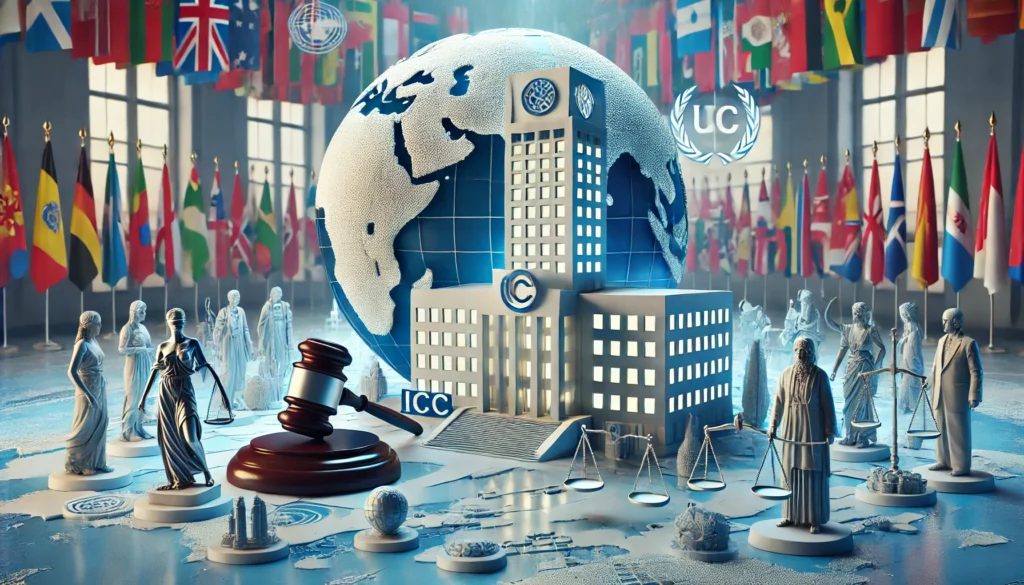Published on 1st August 2025
Authored By: Nithya L.R.
K.L.E. Law College, Bengaluru
Introduction
Definition of Genocide
Raphäel Lemkin a polish lawyer coined the term ‘genocide’. The term ‘genocide’ is defined under the International Criminal Court of the Rome statute the definition for crime against humanity has been mentioned under Article 6. It means, any act which is done with the intention of destroying, in whole or in part, a national, ethnical, racial or religious groups, as such: killing members of the group, Causing serious bodily or mental harm to members of the group, deliberately inflicting on the group conditions of life calculated to bring about its physical destruction in whole or in part, imposing measures intended to prevent births within the group, forcibly transferring children of the group to another group.
Definition of Crimes Against Humanity
Under the International Criminal Court of the Rome statute the definition for crime against humanity has been mentioned under Article 7: “crime against humanity” means any of the following acts when committed as part of a widespread or systematic attack directed against any civilian population, with knowledge of the attack: (a) Murder; (b) Extermination; (c) Enslavement; (d) Deportation or forcible transfer of population; (e) Imprisonment or other severe deprivation of physical liberty in violation of fundamental rules of international law; (f) Torture; (g) Rape, sexual slavery, enforced prostitution, forced pregnancy, enforced sterilization, or any other form of sexual violence of comparable gravity; (h) Persecution against any identifiable group or collectivity on political, racial, national, ethnic, cultural, religious, gender as defined in paragraph 3, or other grounds that are universally recognized as impermissible under international law, in connection with any act referred to in this paragraph or any crime within the jurisdiction of the Court; (i) Enforced disappearance of persons; (j) The crime of apartheid; (k) Other inhumane acts of a similar character intentionally causing great suffering, or serious injury to body or to mental or physical health.
Development of international criminal justice
The development of international criminal law started in the 1870’s. with the destruction caused by the Franco-Prussian War, one of the founder of International Committee of the Red Cross, Gustav Moynier proposed for a permanent international court. This emerged with the post World War II trials, notably with the case of International Military Tribunal at Nuremberg (Nuremberg Tribunal). Convention on the Prevention and Punishment of the Crime of Genocide was adopted by The United Nations General Assembly on December 9th 1948.[1]
Importance of addressing such crimes
Genocide stands among the most horrific crimes against humanity, involving the intentional destruction of an entire national, ethnic, racial, or religious group. Tackling such egregious acts is vital to maintaining the core principles of global justice and protecting human dignity. Taking legal action against those responsible for genocide sends a decisive and unambiguous message: the international community will not stand idly by in the face of mass atrocities. Such accountability not only delivers justice to victims but also serves as a powerful deterrent, reducing the likelihood of similar crimes being committed in the future.
Ensuring justice for victims is equally important for fostering healing and reconciliation within affected communities. Acknowledging the suffering of survivors through both legal proceedings and moral recognition affirms their experiences and aids in the emotional and societal recovery process. In this way, transitional justice becomes a crucial tool for breaking cycles of violence and building sustainable peace.
Additionally, confronting genocide is essential for preserving the legitimacy and strength of international law. Global institutions such as the International Criminal Court (ICC) and special tribunals are key mechanisms to ensure these crimes do not go unanswered. By upholding international legal instruments like the Genocide Convention, the world reaffirms its unwavering commitment to human rights and the rule of law.
Case laws
The trial of Jean-Paul Akayesu represented a pivotal moment in the development of international criminal law. Akayesu was the first person to be found guilty of genocide by the international criminal tribunal for rawanda (ICTR) while serving as a mayor of taba during the Rawanda Genocide in 1994. In a landmark ruling on 2 September 1998, he was found guilty of genocide, crimes against humanity, and breaches of the Geneva Conventions. This case was particularly significant as it was the first time an international court recognized that acts of rape and sexual violence could be classified as components of genocide and crimes against humanity. Akayesu challenged his life sentence and his conviction, claiming he had been denied legal representation of his choice and raising concerns about judicial impartiality and evidentiary procedures. Nevertheless, the Appeals Chamber upheld the original judgement and rejected all eleven of his claims. Meanwhile, the Prosecution challenged certain legal interpretations, prompting the Appeals Chamber to clarify critical aspects of the ICTR’s legal framework.
Among these were affirmations that incitement to genocide did not necessarily have to be direct and public, and that discriminatory intent is not a perquisite for all crimes against humanity.
In the end, the case reaffirmed global responsibility for crimes and emphasized how critical it is to confront sexual abuse in crisis situations.[2]
Another notable case for crime against humanity is the Nuremberg trials which took place after the World War II. This trial took place from 1945 to 1949 in Germany, where there were 24 Nazi military leaders who were under arrest by the US police because they had followed the orders of Hitler’s order. They had killed many people, they were to be punished. These killings are crime against humanity.
Genocide in Gaza
In a recent 179-page report, Human Rights Watch (HRW) charged Israeli officials with committing genocide and crimes against humanity in Gaza. Since October 2023, Israel has allegedly purposefully denied more than two million Palestinians in Gaza access to clean water, resulting in deaths from malnutrition, illness, and dehydration, according to the group. HRW’s investigation, supported by satellite imagery, interviews, and information from medical and humanitarian professionals, found that Israel purposefully destroyed water infrastructure, shut off fuel and electricity, and obstructed humanitarian aid, such as clean water and water filtration systems. According to HRW, these acts are deliberate policies of deprivation that qualify as crimes of extermination and constitute one of the five legally recognized acts of genocide under the 1948 Genocide Convention. The claim of genocidal intent is supported by the report’s citation of remarks made by Israeli officials indicating a desire to exterminate Palestinians in Gaza. Even after Israel was repeatedly ordered by the International Court of Justice (ICJ) to guarantee humanitarian access, the siege and denial of essential resources persisted. Numerous cases of hepatitis, respiratory infections, and water-borne illnesses have been reported, making the humanitarian crisis particularly devastating for pregnant women, children, and individuals with disabilities. Meanwhile, a systematic tracking of the entire scale is impossible due to the destruction of healthcare infrastructure.[3]
How to prevent this genocide at the international level?
- Prevent Conflict: During times of war, genocide frequently occurs. We must address the underlying causes, such as racism, inequality, and hate, in order to stop it. With assistance from the UN through aid, diplomacy, and the promotion of human rights and development, governments are primarily responsible for averting conflict.
- Protect Civilians: When a conflict breaks out, the protection of civilians takes precedence. The tasks of protecting civilians from targeted violence, assisting in the disarming of combatants, bolstering the legal system, and reporting hate speech that could result in genocide are frequently assigned to UN peacekeepers.
- End Impunity The perpetrators must face consequences in order to prevent future genocides. Justice is served by courts that prosecute those responsible for genocide and related crimes, such as the International Criminal Court (ICC) and previous tribunals for Rwanda and Yugoslavia.
- The UN established early warning systems to keep an eye out for early indicators of genocide and notify the world in time to act after the failures in Rwanda and the Balkans.
Conclusion
The legal structure governing the prosecution of genocide and crimes against humanity has developed significantly over time, rooted in the Rome Statute and defined by influential court rulings such as the Nuremberg Trials and the ICTR’s judgment in the Akayesu case. These legal stipulations and precedents mirror the international community’s resolve to maintain justice, enforce accountability, and discourage large-scale atrocities. They constitute essential instruments to support the rule of law and safeguard basic human rights.
References
[1] Evolution of International Criminal Justice, https://www.aba–icc.org/about–theicc/evolution–of–international–criminal–justice/, accessed on 6th April, 2025
[2] Idib at 3
[3] Israel’s Crime of Extermination, Acts of Genocide in Gaza, https://www.hrw.org/news/2024/12/19/israels–crime–extermination–acts–genocide–gazaaccessed on 7th April, 2025




